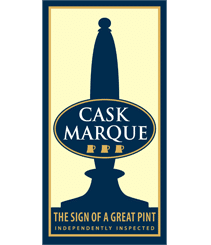Regardless of your religious persuasion, there has always been a bond between religion and ale. Back in the far mists of time, when we didn’t really understand the role of yeast in fermenting grain into an intoxicating, thirst quenching liquid, we truly believed a bit of magic was involved.
Some deity, some God in the skies above us waved a wand and –hey presto – a drink was created which made us happy, talkative and creative. It helped us laugh at rubbish jokes, and make friends of enemies (who hasn’t slurred the immortal words, “You’re my besht friend you are, no really, you’re my besht friend” whilst being propped up on the way home).
It’s why we still automatically raise our glasses to this day before we take our first sip: we’re subconsciously thanking the mysterious celestial beings for this divine drink.
Well, that’s until Louis Pasteur came along, smashed this theory out of the water, and said “Look chaps. It’s not magic. It’s a chemical reaction, and it’s scientific”. A bit like the bullish kid at school who blabs that Father Christmas isn’t real, and it’s actually your Mum and Dad who put all the presents under the tree.
(Blimey, I hope the Daily Mail doesn’t get hold of this, I can see the headline: “Beer Sommelier ruins the magic of Christmas for thousands of kids nationwide”).
I love the fact that during the Middle Ages, throughout Europe, the most brilliant beer was being produced by monks. Let’s face it, they ticked all the boxes. They were clean; cleanliness is next to Godliness, and sanitation is particularly important when brewing beer. They were literate, they wrote the good recipes down so they could replicate them time and time again. And because they really didn’t have a lot else to do, they were patient, and had the time to perfect a beer.
Did they abstain from beer themselves? Oh no, not at all! Records from Italy, France, Belgium and the UK show that these monks were the original Cask Marque inspectors. Quality control had to be maintained, and at points, some of these monks were imbibing up to 13 pints a day. Slightly dodgy considering any sign of drunkenness was not tolerated. If a monk spilled beer because of inebriation they were made to stand upright and perfectly still for an entire night.
You may be wondering why I’m babbling on about religion this weekend. In the Christian calendar, the 24th of June is designated Midsummer’s Day, a feast day of the Christian martyr St John the Baptist. Focus on the word ‘feast’. Am I right in saying you can’t have a feast without a couple of cheeky beers?
This week we’re going with a widely known beer, Greene King Abbot Ale, from Bury St Edmunds. The history of brewing in this little market town can be traced back over a thousand years, and the brewery sits alongside the ruins of the Abbey. Abbot Ale gives a nod to the powerful brews that monks created all those years ago. It’s 5%, rich with masses of fruity personality and a sweet lovable finish. It’s brewed for longer than other beers to create a fuller, more mature flavour. The head brewer describes the colour as ‘mahogany’. That’s a great word for a beer, it suggests sturdy, well made, reliable, stands the test of time.
On my Midsummer Feast table I’m going to have a tankard of Abbot with meat: pulled pork with crackling, charred lamb chops with crispy fat (which I’ll eat with my fingers), and juicy rump steak with a pot of English mustard. If you’re not a carnivore like me, ripen some really stinky Brie de Meaux and load onto hot bread with grilled artichokes.
As you raise your glass, just remember why you’re doing it, and give a little thank you to whoever invented beer.


